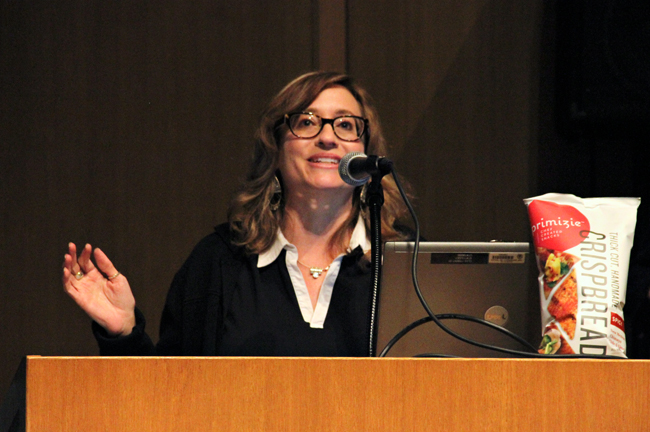Entrepreneurs, professionals and scholars gathered to discuss ways to improve the transportation and quality of food this past Friday and Saturday at the E.A. Smith Building.
The Food Lab at UT, which helps entrepreneurs experiment with food to develop solutions to challenges faced within the food industry, partnered with Boston University to host the Food, the City and Innovation Conference.
Roundtable discussions revolved around streamlining the food supply, decreasing the distance between consumers and their food sources and entrepreneurship opportunities within the food industry.
“We’ve aesthetically separated ourselves from the things that allow us to live our lives,” Patrick Haughey, a professor from the Savannah College of Art and Design, said. “By not seeing them, we don’t understand them. So part of what this conference is about is having people understand things that are actually right in front of them that they don’t look at.”
One suggested way to bring consumers closer to the food production process is repurposing urban and industrial spaces. Architecture graduate student Clifford Kaplan spoke about his experience working with Feedback Farms in New York City, a program that started gardens on vacant Brooklyn lots.
“Some of the hurdles that they are addressing now are common hurdles for urban agriculture,” Kaplan said. “Contaminated soil, small scale growing spaces and temporary access.”
Meg Williams, an employee of Austin’s community garden program, Austin Grows, which assists people doing urban agriculture navigate city procedures, said that while the city has “roles and responsibilities that it has to take on,” she would like to learn from other cities who have assisted people grow their own food.
“If cities do want to get more involved in helping facilitate more food production, how can they do it in a way that’s the least intimidating and makes it easier for the community to actually want to do it?” Williams said.
Daniel Heron, a UT alumnus and Food Lab volunteer who helped organize the conference, believes one of the most important concepts discussed at the conference was a change in thinking about sustainable food.
“The two things that I really like was changing our focus from thinking about radius when it comes to food miles, [and] to infrastructure on biological landscapes,” Heron said. “It’s really easy to say 100 Mile Diet, but it’s another thing [to] think about, ‘Oh woah, there’s no food being grown within 100 miles, so what, I don’t get to eat anything on the 100 mile diet?’”
Infrastructure is often thought of as the most difficult thing to change in a city, Matt Fajkus, an assistant professor in the School of Architecture, said.
“It comes to a shift on many different scales, it’s not just a shift of building types, or a shift in different types of infrastructure in terms of transport; it’s quite complex,” Fajkus said. “But I do think that it can happen.”
Published on February 4, 2013 as "Food Lab promotes innovative food ideas". This story was edited after its original post.





















